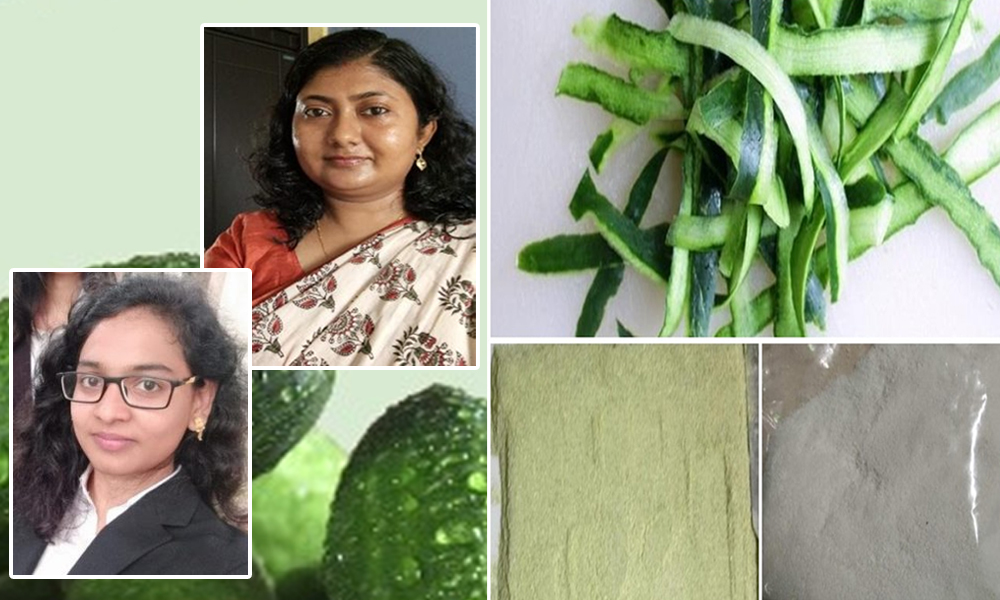
Image Credits: IIT Kharagpur/Twitter
IIT Kharagpur Researchers Develop Eco-Friendly Food Packaging Material From Cucumber Peels
Writer: Ankita Singh
A literature lover who likes delving deeper into a wide range of societal issues and expresses her opinions about the same. Keeps looking for best-read recommendations while enjoying her coffee and tea.
West Bengal, 18 Nov 2020 2:45 PM GMT | Updated 18 Nov 2020 2:48 PM GMT
Editor : Shubhendu Deshmukh |
Shubhendu, the quint essential news junky, the man who loves science and politics in equal measure and offers the complete contrast to it by being a fan of urdu poetry as well.
Creatives : Abhishek M
" An engineer by profession, Abhishek is the creative producer of the team, graphic designing is his passion and travelling his get away. In more ways than one, he makes the content visually appealing."
According to the team, cucumber peels have greater cellulose content than other peel waste that can be used for making food packaging material.
A team of researchers at the Indian Institute of Technology (IIT), Kharagpur have found a way through which discarded cucumber peels could be now put to use. By using cucumber peels, they have designed eco-friendly packaging material which is biodegradable.
According to the team, cucumber peels have greater cellulose content than other peel waste. Cellulose nanocrystals that is it derived from these peels can be used for making food packaging material and it also has low oxygen permeability.
Jayeeta Mitra, Assistant Professor at IIT Kharagpur said that while single-use plastic is being avoided by consumers, they are still present in food packaging items. Natural biopolymers could not find their place in the industry as they lack important features like strength, elongation, barrier property, optical property, and even biological safety.
She further shared that in our country cucumber is widely used such as in salads, pickles, cooked vegetables also in the beverage industry. This leads to a large volume of peel biowaste which is generated and it is rich in cellulose content.
She shared that cucumbers generate about 12 per cent residual wastes. Their team has used the celluloses, hemicellulose, pectin extracted from this processed material for deriving new bio-materials which are useful as nano-fillers in bio-composites.
Talking about the findings of the research, Mitra said that their study shows that cellulose nanocrystals derived from cucumber peels possess modifiable properties. Due to the presence of this property, it results in better biodegradability and biocompatibility of the packaging material.
Sai Prasanna, a research scholar at the institute shared that the non-toxic, biodegradable and biocompatible product has no adverse effects on health and environment. It also has a huge market potential as the organic waste which is generated holds high cellulose.
Apart from the food packaging and beverage industries, the researchers are optimistic about its scope in various other related fields like paper making, coating additives, bio-composites, optically transparent films, and as stabilisers in the oil-water emulsion.
Also Read: Dutch Students Make Two-Seater Electric Car Entirely Out Of Waste Material
 All section
All section














